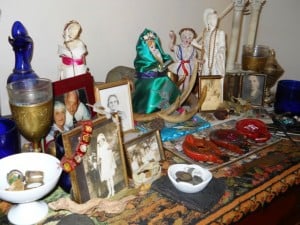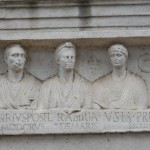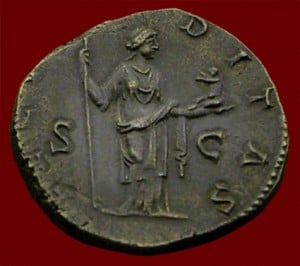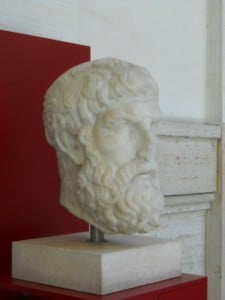When first I attended school in the 1950’s one only had a choice between the decidedly Protestant public schools or the Catholic parochial schools. Neither were accommodating to non-Christians. I recall one time when a group of Catholic students transferred to public school and a teacher humiliated them for not knowing their school prayers as they were said by Protestants. Then there was a time when we found a boy tied to our tree in the front yard. The neighborhood boys had done it because he was a Protestant. They didn’t really know what Protestants were, just that they were different, and they figured that my family might know what to do with him. We began escorting him whenever he had to walk through our neighborhood so that none of the other boys would molest him. Why were we chosen to deal with him? The neighborhood knew we were different, but they were not quite how we were different. It was a Polish Catholic neighborhood, so anything they saw as strange about us they just attributed to our being Italian. When we moved to the suburbs, where most were Protestant, our differences were attributed to being Catholic even though we weren’t. We moved often, every two or three years, before anyone got to know us well. And, besides, no one then believed that non-Christians lived among them. Certainly not pagans.
Then, of course, we never thought of ourselves as being pagan. Pagan was a term used by Christians for non-Christians. We thought of pagans as peasants, not as some religion. We had our own tradition and never called it by any other name other than “our tradition.” I did attend a Catholic school for almost one and a half years, where two nuns literally tried to beat their religion into me. They had me kneel bared-knee on rice as they beat me with sticks on my head and shoulders. In that school a Franciscan nun ended daily prayers with “May God curse the heretics, pagans, and the Jesuits,” not that any of us young children understood her words. At a later time I would again attend a Catholic school, run by Carmelites, for about five months. But we didn’t know much about Christianity. My father once took us boys to a Catholic church. We sat in seats at the back that were reserved for some other ceremony, and so we caused a little disturbance by sitting in them. When my grandfather first gained his US citizenship, he decided we should all try to become Americanized, and since Americans celebrated Christmas, so should we. He therefore had his entire family, nine children with their spouses and all his grandchildren attend a Christmas service at this little church where there was a priest saying midnight mass for about five people. We came into the back, maybe forty of us in all, set up our food, began playing music, laughing, dancing, and feasting. The priest and his people were just stunned. But, after all, isn’t that how one celebrates a festival?
Our tradition was different, but we were not really conscious of it. It was all we knew. In all that time I was never really confronted about our religious tradition. People assumed things about us, and we just allowed them to do so before we would move on again. It wasn’t until my first Sunday in the Army, during basic training, that I was asked to declare my religious preference. At the end of morning formation we were told that all of the Catholics were to reform on the right, all Protestants on the left. That left two of us still standing in the middle. The First Sergeant, a huge Amerindian, looked squarely at the little man next to me and boomed out, “What’s your problem?”
The little man, visibly shaking, replied, “I’m Jewish.”
“What of it?” replied the sergeant, “Choose, Catholic or Protestant, but you’re going to chapel.”
The Army wasn’t very understanding towards individual differences back then. The First Sergeant became more angry, if that was possible, seeing me still waiting there alone. “And what’s your problem?” he shouted out in as intimidating a manner as he could muster.
But I calmly replied “I’m a polytheist.”
He wasn’t expecting my answer. He became flustered, unable to get out a coherent word, until finally he blurted out, “Well, then you go do whatever it is you people do.”
Every week from that day until the end of basic training I spent my Sunday mornings under an oak tree communing with my Gods. This took place during the Viet Nam War, and with the suggestion of my platoon’s DI, who was of Japanese descent, the Army decided to classify me as a Buddhist.
More than twenty years later my youngest son found himself in a similar situation. He had to declare his religious faith to the Army. By then the Army had one Sikh, several Muslims, and it did recognize “pagans” because of a court order. But by “pagan” the Army meant “wiccan” which we are decidedly not. So my son, too, was declared a Buddhist and was generally left alone to do whatever it is that Buddhists do. No one was going to recognize the difference anyway. We are not any sort of Christian, nor are we Muslim, Jewish, Hindu, or Sikh. But pagan? I don’t consider myself a pagan either, whatever pagan really means. An infidel perhaps, since I don’t practice any of those other faiths. However, I am faithful to my Gods and to my family tradition by whatever name it may be called.















